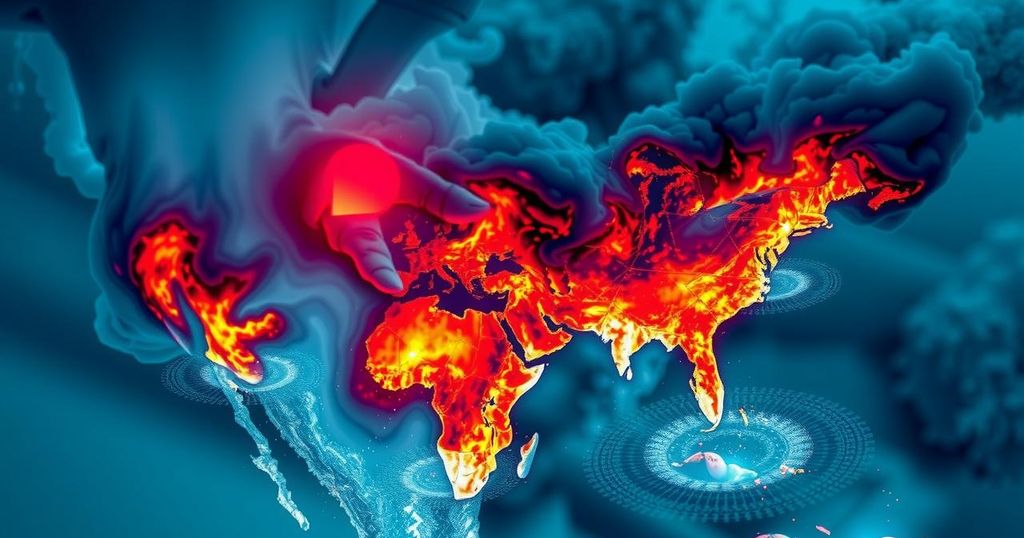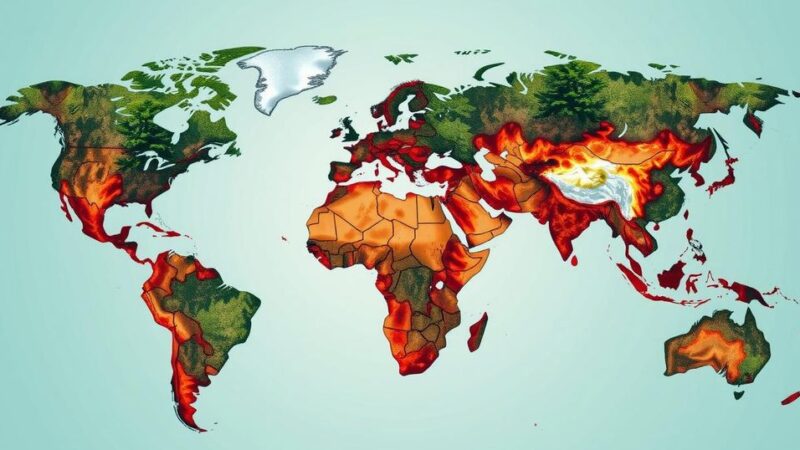2024 witnessed unprecedented climate extremes, tying with 2023 as the hottest year on record. Notable events included record rainfall in Dubai and catastrophic flooding in Spain. While El Niño influenced many weather patterns, climate change significantly intensified events, resulting in catastrophic impacts, particularly on unprepared communities. The year highlighted the necessity of better early warning systems and community resilience strategies to adapt to ongoing climatic shifts.
The year 2024 was marked by climate extremes typical of an increasingly warming planet, as it was reported that both 2023 and 2024 held the title for the hottest years recorded. The year witnessed dramatic weather phenomena, including record rainfall events in Dubai, where the region received its annual average in just 24 hours, and unprecedented flooding in Spain, delivering 772 millimeters of rain in a mere 14 hours. A report led by Dr. Wenxia Zhang from the Institute of Atmospheric Physics underscored that while phenomena such as El Niño influenced these weather events, the devastating impact was exacerbated by climate change, making these occurrences significantly more likely and intense than prior to industrialization.
In southern China, some areas received double the normal precipitation during the spring, while Central Asia suffered historic flooding for the first time in seven decades. The hurricane season also proved catastrophic, with Hurricane Milton becoming the fifth most intense Atlantic hurricane recorded, followed closely by Hurricane Helene, which caused widespread destruction on the East Coast, particularly in less prepared inland areas. Meanwhile, the Panama Canal faced dire consequences from drought, affecting global shipping and leading to substantial economic losses.
Despite the increasing acknowledgment of these extreme climatic events, many communities remained unprepared, resulting in severe consequences. For instance, infrastructure in Valencia, Spain faltered under the weight of unexpected floods, leading to public anger over insufficient warning systems. The study emphasized the crucial need for more effective early warning systems and better community preparedness to build resilience against climate change-induced weather extremes. The results of this study serve as a clarion call for strategic investments in climate adaptation measures and improvements in the dissemination of weather alerts to mitigate future disasters.
Lastly, as the research was compiled through detailed analysis and collaboration among various international institutions, it disclosed a dual narrative of progress and ongoing challenges in understanding the dynamic interplay between climate change and natural weather variations. To address these challenges, the scientific community advocates for a comprehensive approach to tackle extreme weather events, intertwining efforts in prediction accuracy, system improvements, and community education on climate resilience.
The topic of climate catastrophes in 2024 highlights the soaring number of extreme weather events impacting millions globally. The surge in temperatures has correlated with a marked increase in rain and drought occurrences, illustrating the direct effects of climate change on weather patterns. Historical data indicates that anthropogenic influences have intensified these phenomena, necessitating an urgent reevaluation of our preparedness and adaptability in facing such challenges. The year 2024 stood out not only for its climate records but also for the heightened awareness of the consequences of inaction in addressing evolving climate dynamics.
In conclusion, the climate events of 2024 served as a stark reminder of the urgent need for enhanced climate resilience measures globally. The compounded effects of climate change, driven by human activities, underscore the necessity for immediate action towards improving community preparedness and refining early warning systems. As emphasized by the research findings, understanding the links between these extreme events and climate change is crucial for informing future policy and recovery strategies to mitigate the adverse impacts of climate catastrophes.
Original Source: studyfinds.org







